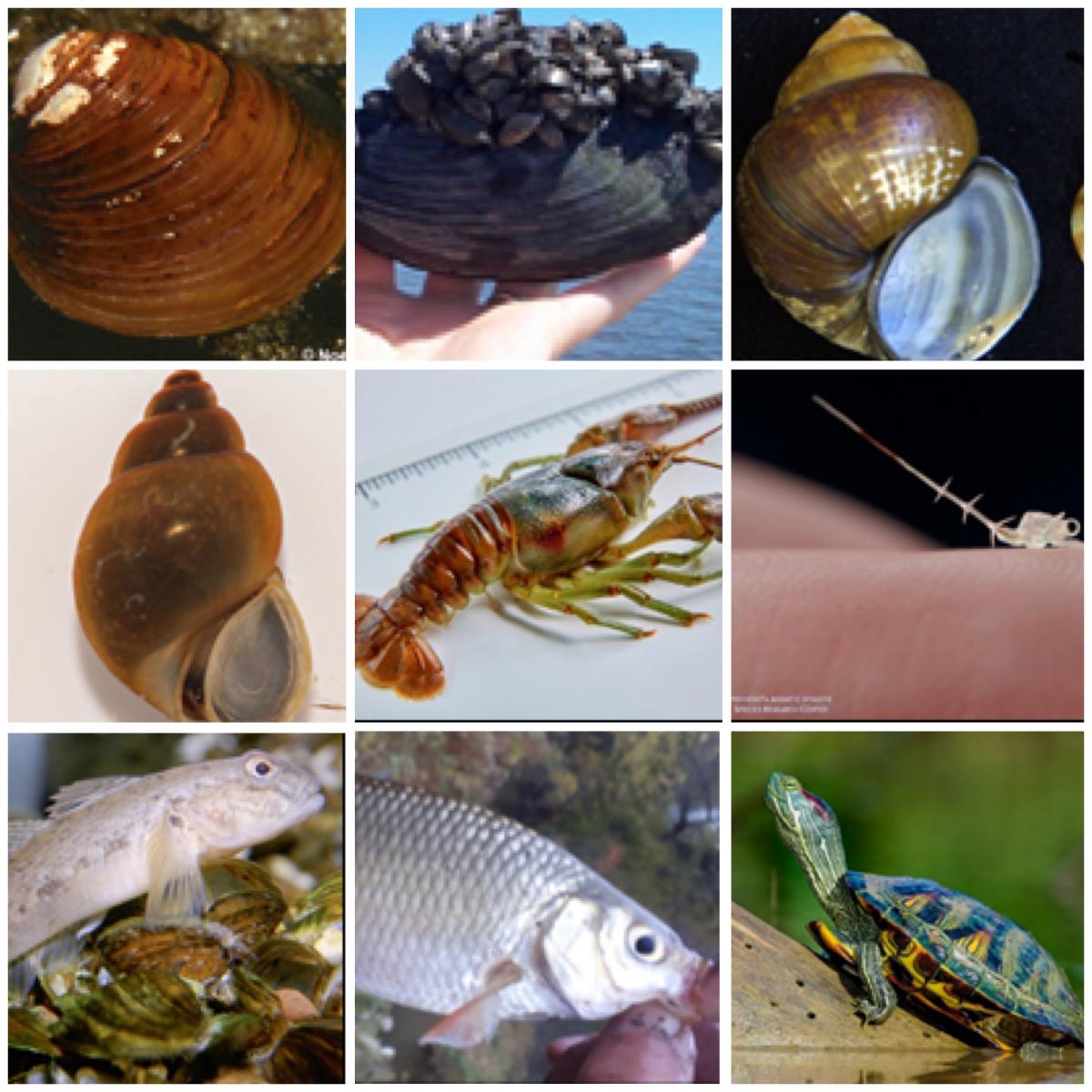Join DEC's New Community Science Project - Become a Vermont Invasive Patroller for Animals!
2025 Workshop Schedule:
Please see the 2025 Vermont Invasive Patroller Workshops Flyer for the tentative 2025 schedule and registration link.
Take part in the Vermont Invasive Patrollers for Animals (VIPA)
program! Whether you're a previous Vermont Invasive Patroller (VIP) looking to further engage in protecting your local waterbody, or a new volunteer interested in becoming involved in Vermont's surveying efforts, we need your help!
While the VIP program focuses on aquatic invasive plants, VIPA focuses on a group of priority aquatic invasive animals. By establishing a robust program of VIPAs, we hope to gain a sense of the location of these animals and how they are distributed across the State. Based on the monitoring efforts of VIPAs and mapping of these locations, VTDEC can better understand the breadth, scope, and impacts of these species.
Volunteering as a VIPA
We ask volunteers to:
- Participate in a two part VIPA workshop with one virtual
session and one field session, to learn how to identify and survey for aquatic invasive animals;
- During the summer, survey for the presence of invasive animals in a local lake or pond (or a section thereof);
- Submit their findings after each survey session to the DEC online form, as well as report their data and pictures to the VIPA iNaturalist project;
- Crayfish monitors with a trap: check this trap several times a week and return the empty trap to the DEC at the end of the season (late September.)
- Mussel monitors with a sampler: set up the plate in late May, and mail it back with all colonized mussels to the DEC at the end of the season (late September.)
- Send photographs to DEC staff directly via email if there is a suspected new infestation of an aquatic invasive animal, but the volunteer is unable to positively identify the specimen.
The online component will train volunteers in the following:
- The fundamentals of lake ecology
- The difference between native, nuisance and invasive species
- How invasive species are introduced and established
- How to identify common aquatic plants and animals, both native and invasive (the latter will be emphasized)
- How to upload data to the DEC webform as well as the VIPA iNaturalist project
The field component will train volunteers in the following:
- How to conduct surveys for invasive species in their natural habitat
- How to set up the crayfish trap and zebra mussel sampler
- How to take high quality photographs of aquatic animals
Check out our Vermont Invasive Patrollers for Animals Manual for an overview of the program, aquatic invasive species distribution and identification, and instructions on how to survey for the different species.
Workshops and materials are offered at no cost to participants. Volunteers may choose to be a basic VIPA, or a zebra mussel monitoring VIPA, or a crayfish trapping VIPA, and they will be given the respective VIPA kit. The decision to monitor for zebra mussels depends on the volunteers time commitment, and access to a dock. Space is limited. For more information, contact Lizzy Gallagher at elizabeth.gallagher@vermont.gov or (802) 490-6129.
Host a VIPA Workshop
Do you have a group of volunteers interested in becoming VIPAs? If so, consider hosting your own VIPA field session.
It’s helpful if you can provide:
- An indoor venue with electricity
- A nearby waterbody that can be easily accessed, preferably with an existing invasive species present
Resources
- Vermont Invasive Patroller for Animals Manual
- VIP for Animals Online Survey Data Sheet
- 2024 Vermont Infested Waterbodies List
- Interactive Aquatic Invasive Species Map
- Animal Survey Data Field Sheet
- Specimen Submission Protocols Webpage
- Depth Charts of Vermont Lakes and Ponds
- Gallery of Invaders
- VIP AIS Introduction Presentation
- VIP AIS Species Presentation
- VIP AIS Key Out Aquatic Plant Presentation
- Make an Aquatic Viewer Directions
Contact
For more information or if you’re interested in becoming a VIPA or hosting a VIPA workshop for a group of volunteers in your area, please contact:
Lizzy Gallagher at elizabeth.gallagher@vermont.gov
or call (802) 490-6129
